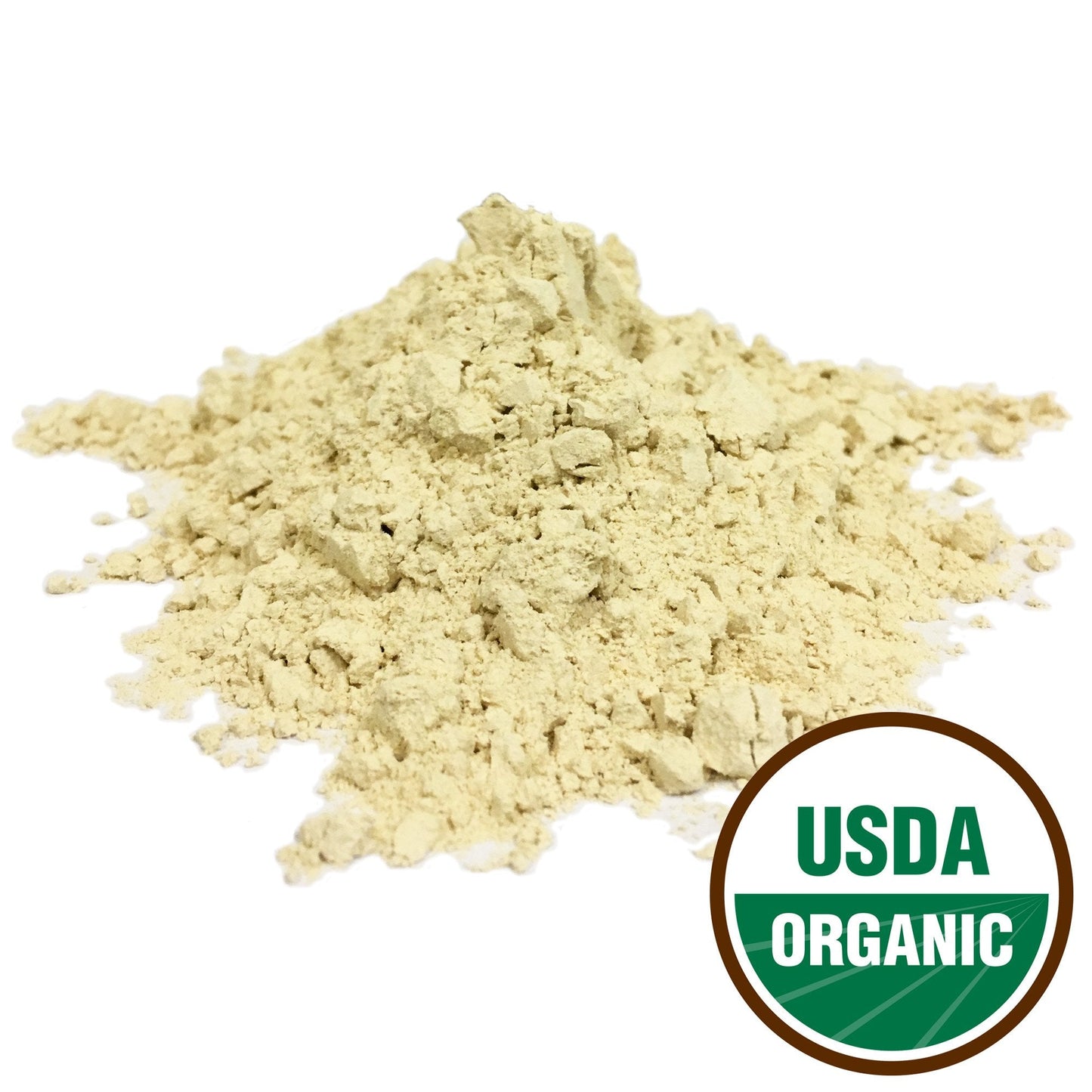Best Botanicals
Ashwagandha Root
Ashwagandha Root
Couldn't load pickup availability
Ashwagandha has historically been used for people who are overworked and often hyper-tense. This herb is in the nightshade family, but it lacks the poisonous attributes. Ashwagandha has typically been found in India.
UPC: 084783000136.
Origin(s): India.
Latin Name(s): Withania somnifera.
Also known as: Winter cherry, Indian ginseng, Ashvagandha.
Plant Part(s) Used: Root.
Appearance: Cream to brown.
Aroma: Sweet, Root-like.
Taste: Sweet, slightly bitter, astringent.
GMO Status: Non-GMO.
Allergen: None.
Additives: Free of any additives or preservatives.
Applications / Preparations: Dried roots cut and sifted for tea, powdered and added to formulas, tinctured, or encapsulated. In Indian cuisine, ashwagandha is often blended with honey or ghee (clarified butter) and sometimes other herbs to produce a seasoning called churna, which is added to soups, stews and rice and vegetable dishes.
Storage: Store in a sealed container in a cool, dry place.
Shelf Life: It is very difficult to pin down an exact expiration date for most single herbs as they do not really expire, they lose potency or strength over time but will still have value. Unlike synthetic material or drugs, herbs can contain many constituents that contribute to their medicinal effects. Even if when we know what the active constituents are, there are often many of them in a single herb, each with different rates of degradation. Some herbs lose their effect more easily. Other herbs that possess more stable compounds such as alkaloids or steroids will last much longer.
A huge part of the degradation rate of herbs depends also on the storage conditions of the herb, & even on the quality of the herb before storage – how it was grown, harvested, dried & processed. If the product is left in hot places or open to sunlight then it will degrade much quicker than if it was stored in cool, dry place & sealed tightly.
A good rule of thumb is that herbs should be stored no longer than 2-3 years but many herbs will have great strength much longer than that. To determine if a an herb is still good you can check the appearance & aroma. Herbs that are no longer acceptable will have lost much of its vibrant color & will instead appear dull & faded. The bigger key though is to smell the raw materials to see if the potent aroma is still present.
Warning: Not for use in pregnancy except under the supervision of a qualified healthcare practitioner.







